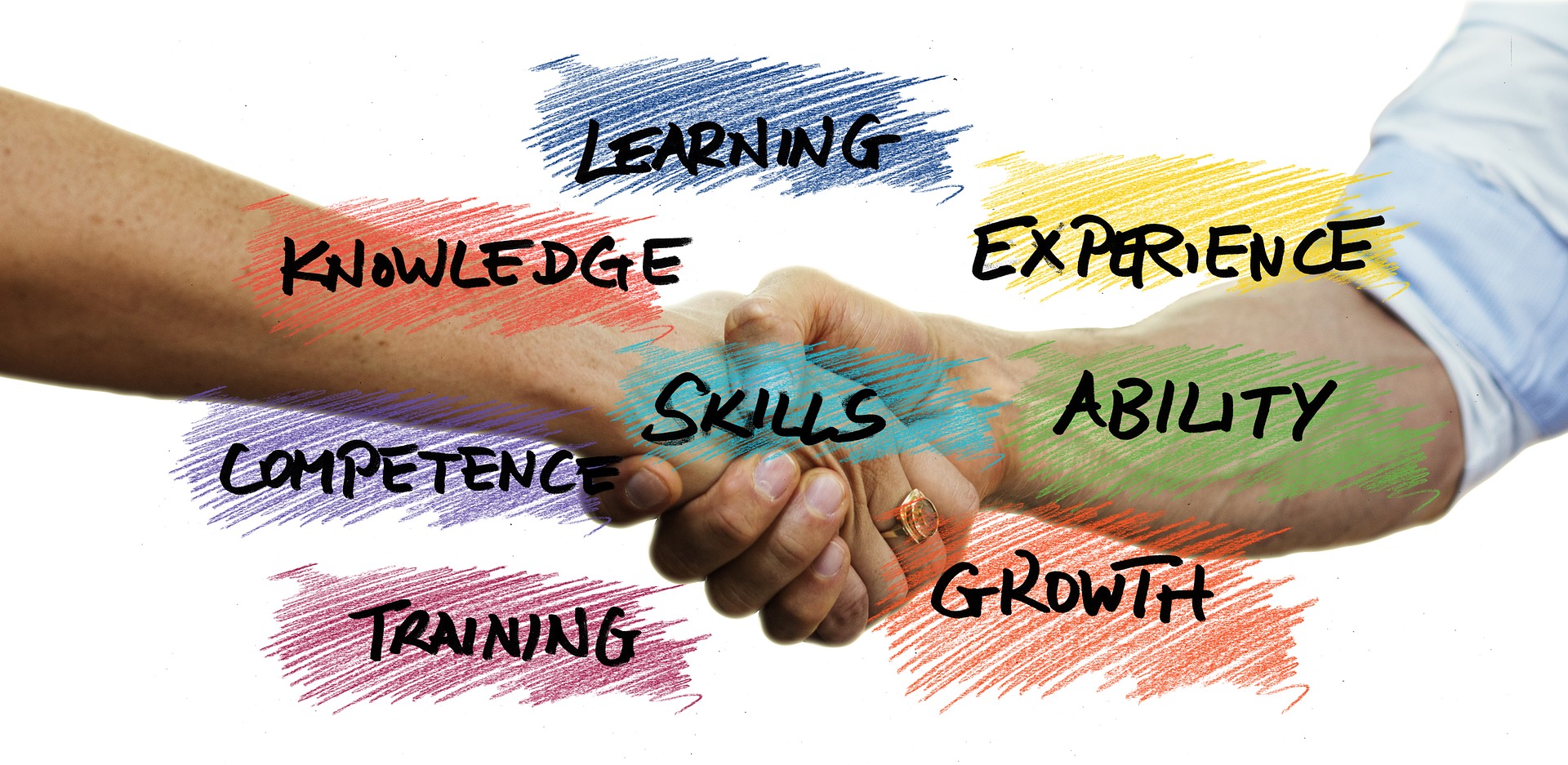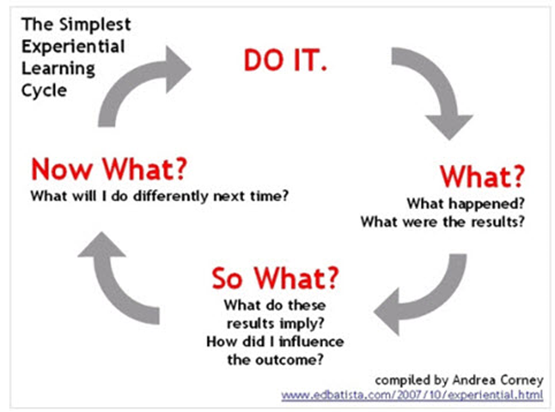
Practice makes perfect?
People ask me what they might expect to get out of counselling, and over the years I have gathered a list of useful resources to help answer that question.
What follows in today’s post I have found to be extremely helpful, in helping to understand my own moment to moment experience, and in navigating what Albert Bandura calls “the vicissitudes of life”, i.e. life’s inevitable ups and downs.
I am grateful to the authors for providing these valuable resources and I have provided the links to the original articles in the post that follows below.
The Simplest Experiential Learning Cycle
Another takeaway from my University days is to treat life itself as a learning laboratory. Imagine being a scientist in a white coat, and treating your whole life as a series of experiments, in which we learn through trial and error, what works and what doesn’t.
For me, this diagram captures the essence of this beautifully, with 4 simple assertions:
DO IT. What? So What? Now What?
This implies that our life improves through some form of action rather than inaction, and that we can learn and improve how we do things by taking action, by experiencing and then evaluating the results, rather than trying to live life purely in our own heads.
Life then becomes a practical exercise in gathering experience and learning from our inevitable mistakes from actions taken, decisions made, and making gradual improvements over time, rather than remaining a theoretical exercise of things we should do but never get around to.
 Experiential Learning Cycles (Ed Batista)
Experiential Learning Cycles (Ed Batista)
What happens if you think about this process as you go about your daily life?
You get a sense of progress from focusing in on a specific task and learning from it, whilst simultaneously checking in to see how you feel about the whole process, at every stage of the process.
So perhaps you can learn to enjoy the journey itself, rather than obsessing about the end result and simply ticking the box when you get there.
How would I use the Experiential Learning Cycle in Counselling?
During a counselling conversation, we can identify particular patterns and responses to stress we experience in everyday situations.
This tool can help us become more aware that what happens to us is a process, both externally (i.e. stressors, stimuli or triggers in our environment) and internally (how we respond to them). This process could be a firmly established habit – a routine pattern of thinking, feeling and relating to ourselves and others.
Step by step
Gaining an awareness and understanding of these habits and patterns can prompt us to look for other choices and take corrective action.
We may notice that other choices exist and can be made. Different responses leading to different actions.
By taking a different course of action, a small ‘nudge’ to one element of a system can change the whole system.
Remaining Curious
By asking these questions often (What? So What? and Now What?), we can explore alternatives we might not have noticed and come up with better strategies, leading to improvements in our processes and better outcomes over time. It just takes practice.
So we need to practice, and we need to keep practicing. We also need to adapt to feedback, and keep making small changes or course corrections. We keep following the cycle and we trust the process.
We might never get to “perfect”, but we can enjoy the process of improving over time and reach “good enough” along the way.
Interested in taking this further?
See our free consultation page to arrange an initial appointment. You can also complete and send in an online Client Intake Form to get the ball rolling. I look forward to meeting you soon.

0 Comments